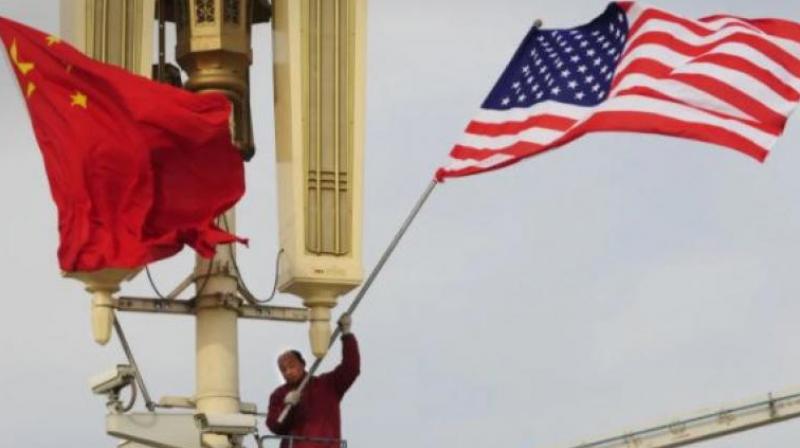US rejects China's retaliatory tariffs, complaint in WTO as baseless'

Washington: The United States on Wednesday rejected as "baseless" China's retaliatory tariffs and complaint in the World Trade Organization (WTO) over the US tariffs recently imposed on steel and aluminium imports.
President Donald Trump imposed tariffs of 25 per cent on steel and 15 per cent on aluminium early in March, citing national security concerns.
But China invoked the WTO dispute process under a different rule, which does not apply, meaning Beijing's threat of retaliatory tariffs on USD 3 billion in US exports is not justified, the US Trade Representative's office said in a statement.
"China's request for consultations... is completely baseless" because the US tariffs "address the national security threat posed by imports of steel and aluminium" and are not part of a safeguard action, USTR said.
A request for consultation is the first step in the WTO's dispute settlement process.
WTO allows temporary tariffs on imports -- known as safeguards -- as an emergency move when a flood of goods "threatens to cause serious injury" to domestic industry.
But the global trade body also allows import restrictions based on national security concerns.
"Consequently, there is no basis under WTO rules for China's decision this week to raise tariffs against over USD 3 billion in US exports," USTR said.
But in a letter to China's WTO representative, US Ambassador Dennis Shea said officials "stand ready to fix a mutually convenient date with China to engage in bilateral discussions."
Primarily intended to compensate for China's overproduction, the US tariffs hit allies as well, prompting the Trump administration to exempt the European Union, Canada, Mexico and four other economies.
Fears of an all-out trade war have intensified in the past month, especially in the wake of this week's tit-for-tat tariffs announced by each country on USD 50 billion in imports from the other, including China's hit list on soy, aircraft and autos.
China has said imposing tariffs on national security grounds poses a systemic threat to the rules-based global trading system safeguarded by the 164-member WTO.
The WTO's Dispute Settlement Body has never arbitrated a case filed under its national security clause.
The concern among WTO officials is that if a member-state, especially a world's top economy, justifies protectionist measures based on national security, it would trigger a free-for-all, with nations ignoring all trading rules currently on the books.

